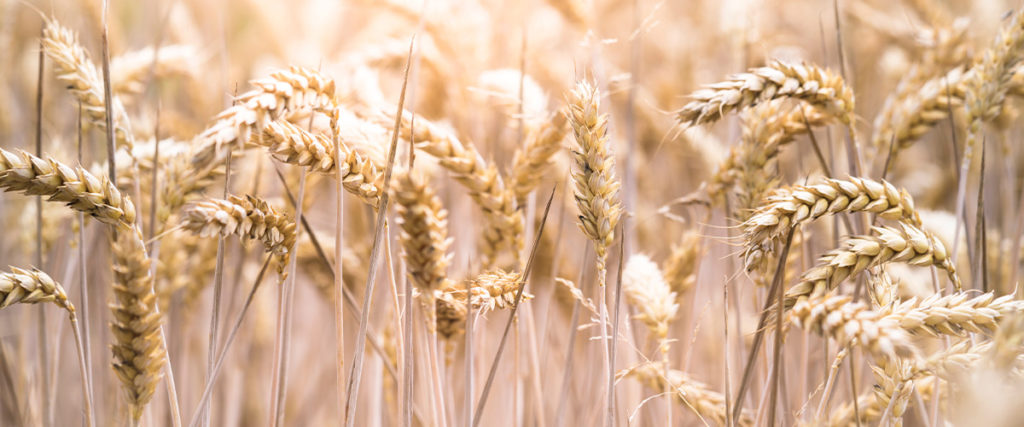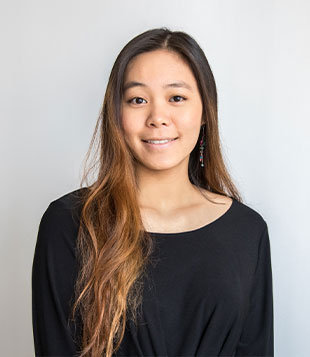Acclaimed TED speaker, CEO and female entrepreneur Anastasia Volkova is building a world with better food security through remote-sensing technologies with her award-winning agtech startup FluroSat.
Imagine a world with global food security. That’s what Australian entrepreneur Anastasia Volkova is trying to achieve. With a PhD in Aerospace, Aeronautical and Astronautical Engineering and a specialism in remote sensing, she founded award-winning agtech startup FluroSat together with Aleksey Achkasov in 2016, creating a data-driven platform for agronomists and farmers to scientifically boost crop yields while minimising fertiliser and water waste. “Launched this year, our product FluroSense is intuitive, easy-to-use, and proving itself as we watch more users from across the globe signing up to it to monitor and manage their farms,” Anastasia explains. Their systems have been adopted by agricultural firms across the world from Guatemala to Bulgaria. Now in its second VC-funded year, the agtech startup is expanding rapidly across Australia, New Zealand and the US, supported by TED Conferences, The World Bank, The University of Sydney, TechCrunch and San Francisco-based accelerator Food System 6 – and has even recently acquired a company of its own, ProductionWise.
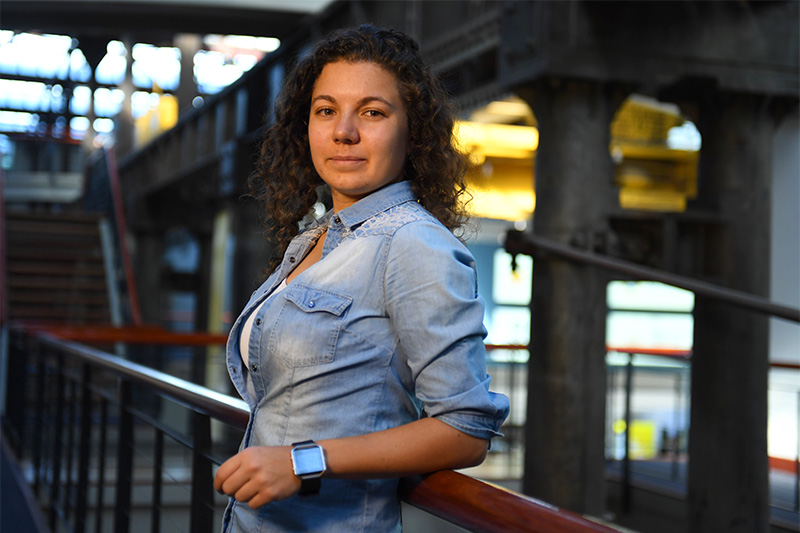
At the heart of it, Anastasia is passionate about using scientific models to make the world’s agricultural systems more efficient, and she’s developed her own to get there. Much of the software FluroSat utilises is proprietary and developed in-house or in collaboration with the world’s leading scientific organisations. The agtech startup offers three main services: FluroSense, ProductionWise and CottonMap. FluroSense is all about identifying crop stresses. Using satellite, aerial and drone imagery, the software highlights areas of stress caused by nutrient deficiencies, waterlogging diseases and pests, then provides nitrogen recommendations and yield potential estimations to optimise available resources. “Machine learning also plays a big role in the localisation of insights from our models, cleaning and contextualising the remote sensing data,” Anastasia adds. ProductionWise enhances this knowledge further, using crop growth models and local weather data to predict yields. Finally, CottonMap identifies cotton fields that might be vulnerable to off-target pesticides blown downwind, especially during fallow spraying.
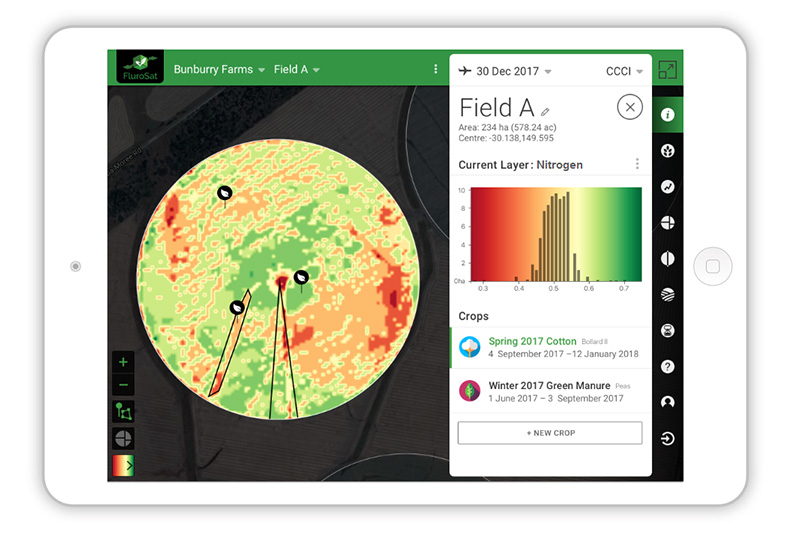
Enhancing the human experience with in-depth, intelligent data analysis, the agtech startup has produced some tangible results. Anastasia relates, “In some high-value crops, it has been proven that the amount of fertiliser can be cut down by 20-30%, which in some industries, like Australian cotton, equates to AUD 30 to 40 million per year.” Agronomists are given different projection models, which can then be used to create a better-informed action plan, depending on the farm’s needs. Catering to small farms as well as larger enterprises, FluroSense is also beginning to offer APIs for ease of integration.
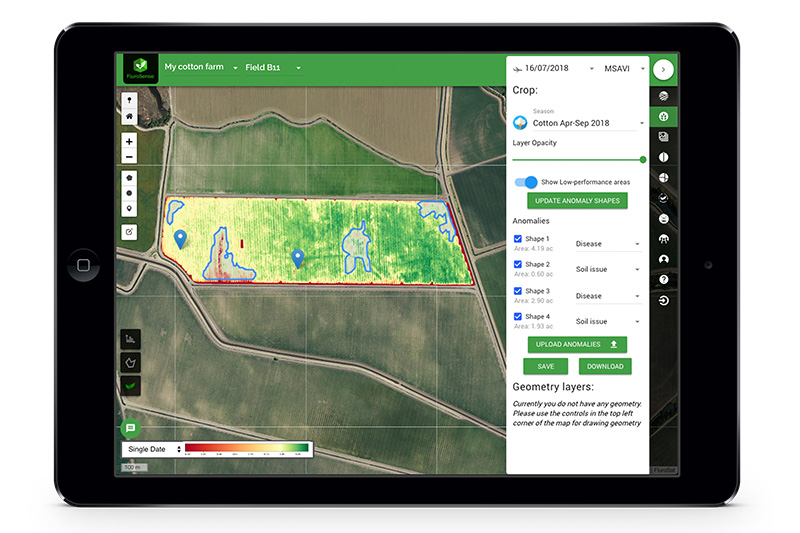
Headquartered in New South Wales, FluroSat taps into Australia’s mature agtech scene – one of the world’s most advanced. With long-standing policies and programmes established by federal research agency CSIRO, top universities and research and development corporations, the agtech startup is clearly making great strides. However, commercial applications remain few and far between. “Australian research until recent years had little commercial focus with a few exceptions,” Anastasia explains. FluroSat is partnering with agronomy and farming organisations to promote greater data collection and try and combat this. “Showing to the growers and agronomists the value of their own data and giving them the power to conduct their own on-farm experiments, we believe, will be the key in fueling the adoption of precision agriculture technologies,” she states.
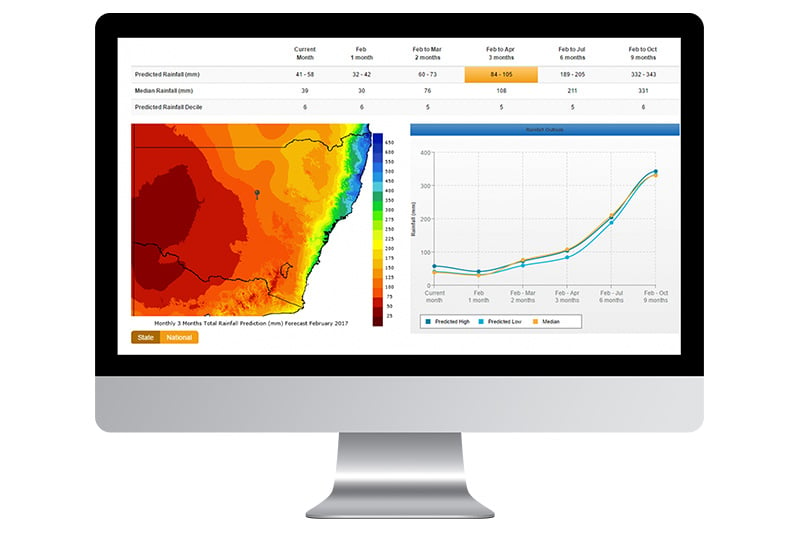
Already an international firm, FluroSat has big plans for its future. “Our agtech scene, which FluroSat is a part of, is standing on the shoulders of giants in terms of the research and validation of technologies in one of the harshest agricultural ecosystems in the world,” Anastasia says. With an innovative perspective on agtech and a Big Data revolution on the horizon, the FluroSat team will be pushing ahead with creating seamless interoperable systems and greater connectivity, consolidating broad databases of research and prediction models for the betterment of the global agricultural future.
